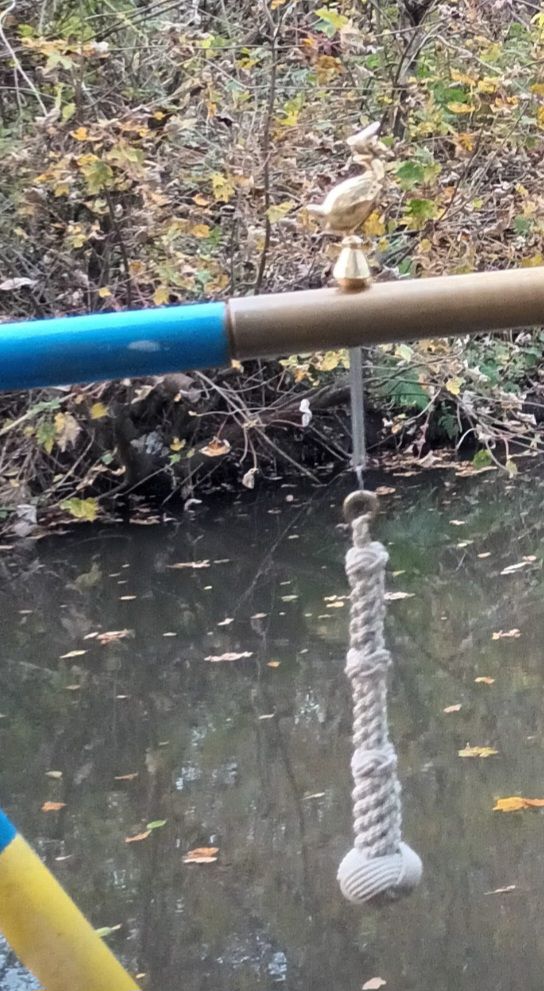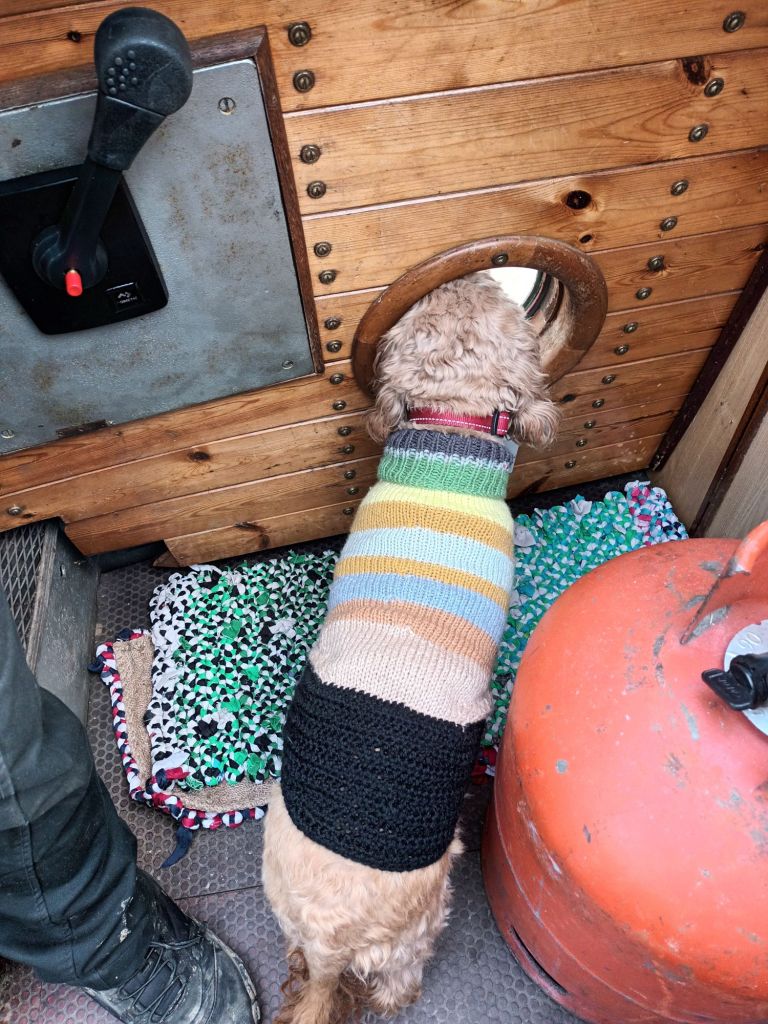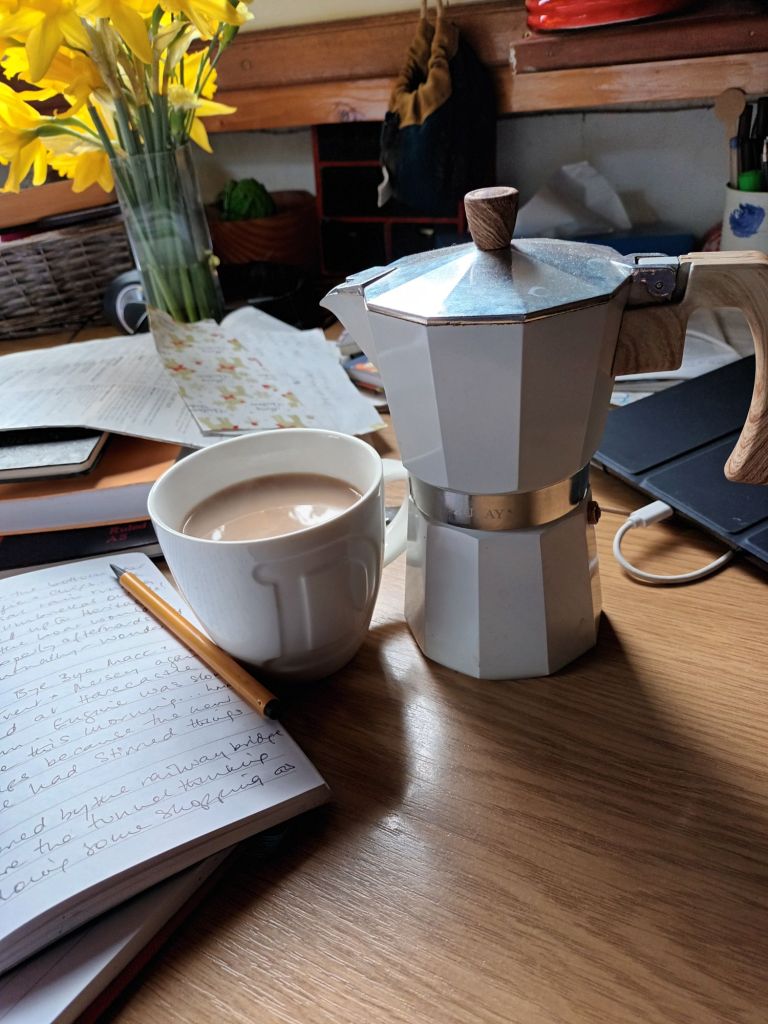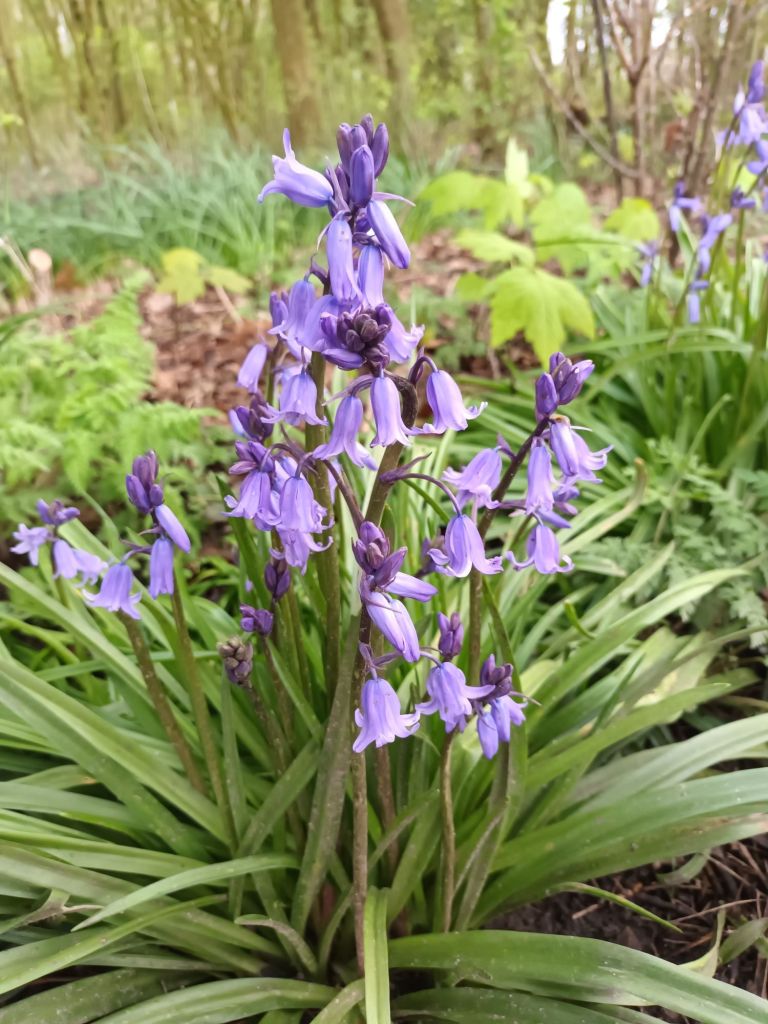Remember how quickly we all adapted to new routines during the national lockdowns? Some of us are creatures of habit, others not, but as humans, we all adopt some elements of routine which researchers identify as ways of coping more efficiently and effectively with our lives.
When we cruise, for example, we now have an established routine before we set off. It took us time to get a routine that works, but this way, it means we each have our responsibilities, and hopefully, nothing gets overlooked. One of us walks the dog, the other does the engine checks and puts the tiller handle onto the swan neck, slotting in Jemima Puddle Duck our tiller pin and attaching the Turks Head knot below that which stops her getting knocked off.

Once we are ready, if there are the two of us on board, the Skipper undoes the rear (stern) rope. If he hasn’t taken down the aerial at the front (bow), then I do that as I undo the front rope. I then push out the bow, pull up the fenders on the towpath side, and bring the centreline onto the rear hatch within easy reach as I walk back to get on at the stern. Boatdog will be waiting for me because she too knows her routine – a favourite marrowbone biscuit on her travelling ragrug on the back deck beside her porthole just as we set off.

So we are all creatures of routine – 2 and 4 legged. This week we’ve begun to adjust to a different routine and adapt to the very well-established routines of the Skipper’s 93-year-old Mum. She’s probably having the bigger change, having to adapt to someone being around her 24/7, but if it helps her stay in the comfort of her own home, it’s well worth it. It’s got me thinking about the value of routines and the reasons we establish them.
Some think of routines as being humdrum, boring or restrictive, but according to psychiatrists, they have a powerful impact on our health and our mental functions as well as providing coping mechanisms. They give us control at times when things seem out of control – as in the pandemic.
In work terms, AI is being harnessed to take over routine tasks in many places to free us humans to engage with more creative aspects. We will still, though, develop our own routines and stick to them – AI won’t be able to sort my regular morning coffee to start the day just the way I like it!

Routines can free us up to be more creative – not having to think what to wear, what to eat for breakfast can be resolved by uniforms (formal or not) and many of us have the same breakfast many times a week if not every day, freeing ourselves up from the start not to have to worry about the little things at the start of a day.
According to researchers if we feel in control of our lives then we don’t rail against routine so much, we accept it as something we’ve chosen to employ to give us more choices over the things we want to spend more time on, more time deciding.
So routines are important, and it can be enjoyable learning new routines, adapting to the routines of others because it enables us to question how and why we do things the way we do. By seeing the routines others have established, we can consider if there is a better way for us to do things, whether organising our diets, our homes, or our daily lives.
One new routine I’m grateful to have established is the result of online encouragement from a group of 4 female boaters, only one of whom I’ve met in real life. Under the alarming title of “Run, there’s something behind you!” we are seeking to encourage each other to get back to or take up running. Because of these wonderful women I’m doggedly waddling at what I like to think is a jog every other day… using the wonderful NHS Couch25k app once more, it worked before and I have very faith it will get me back running again. My knee injury appears to have healed now, and all that’s holding me back is too much weight that I’m lugging around. Hopefully, that will begin to get shaken off as I continue plodding along, but I know the secret is to get into a routine of running, to make it regular. Once I’ve done it, it always makes me feel so much better, so it makes sense to run first thing, to enhance my whole day. Being in one place for months or years as we’re planning will, without doubt, be a major plus in that respect too.
This change makes me very conscious of how fixed we become in our routines and how thrown we can be by what may appear small changes or interferences. It’s interesting to see the medical advice – and what sounds like wise words – concentrate on the short term. In the short term today, tomorrow, this week, we need to see what routines we can keep and identify those which may need adaptation. Once we’ve achieved a single day, we know we can achieve more.
I wonder if we are more adaptable now we live afloat. Some days we move, some weeks we move, some days or weeks we don’t. Our work is not on regular days. We don’t have the embedded daily routines we remember from our past, so work and life for us are more fluid. Perhaps that makes it easier and indeed enables us to be more accepting of adopting and accommodating routines that are new to us. I’m aware the Skipper wouldn’t be happy cruising away while there’s valuable time (hopefully many years of it) to be spent with his mum. We are fortunately we can be here and do this.

There’s a novelty in this new routine adding a new interest to a new way of living, and I never thought I’d say that about routines! It’s a chance to pause and watch the flowers grow…